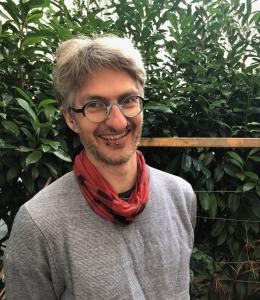
Dr Mario Faust-Scalisi
Nominated Fellow, August 2025
Home institution: University of Bayreuth
Mario works in the multi- and interdisciplinary field of intersectionality studies. Being a trained historian, political scientist and philosopher Mario’s very own academic approach is broader nowadays. With a PhD in Latin American History from the University of Bremen / Germany, looking at birth regulation and linked propaganda in Mexico in the second half of the 20th century, the academic approach grew while remaining in the grand region of 'Latin America‘. After the PhD Mario worked as academic author and developed expertise in queer studies and gender studies first, coming from there to intersectionality studies. After working on queer activism in Colombia, following a focus on reproductive rights, media came more into focus. This developed into a second project after the PhD about comics and history in Chile and the Philippines. Within this zines and activism via comics were looked at. From this the newest project developed, a project is working on since 2022. Since then Mario is Postdoc at the Doctoral College for Intersectionality Studies at the University of Bayreuth.
Project title: From Comics and (Digital) Comic-like Media to Intersectional Activism: Comic-like media in handling intersectionality in Central America and Jamaica
By combining anthropology, social sciences, literary sciences, history and media studies Mario looks at media to discuss intersectional experiences, more specifically the use of digital media by queer activists to communicate about intersectional experiences and allow for activism. However, it is not all media, but comic-like media and comics used in the digital communication for activists' approaches. This is done in a partly comparative manner looking at Central America from Costa Rica northwards and parts of the anglophone Caribbean, especially Jamaica. Aim of the project is to better understand which role comics, zines, but especially digital comic-like media play in handling intersectionality, how and which forms of intersectional experiences are discussed and what are the specific of such media. This will allow to discuss connections between intersectional activism and digital comic-like media, within the region in focus, but going beyond, via diasporic links and more. After a longer research trip and field work in the region and work on the theoretical framework the project is right now looking at the empirical analysis and case studies.
